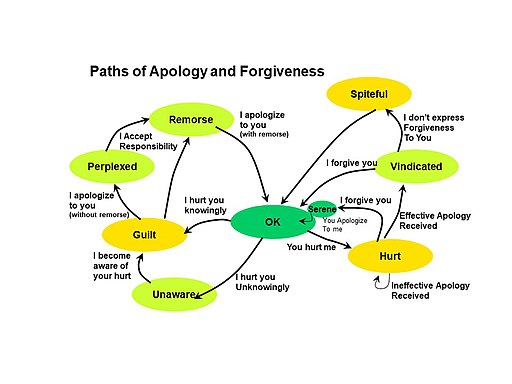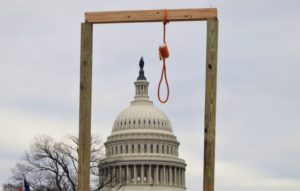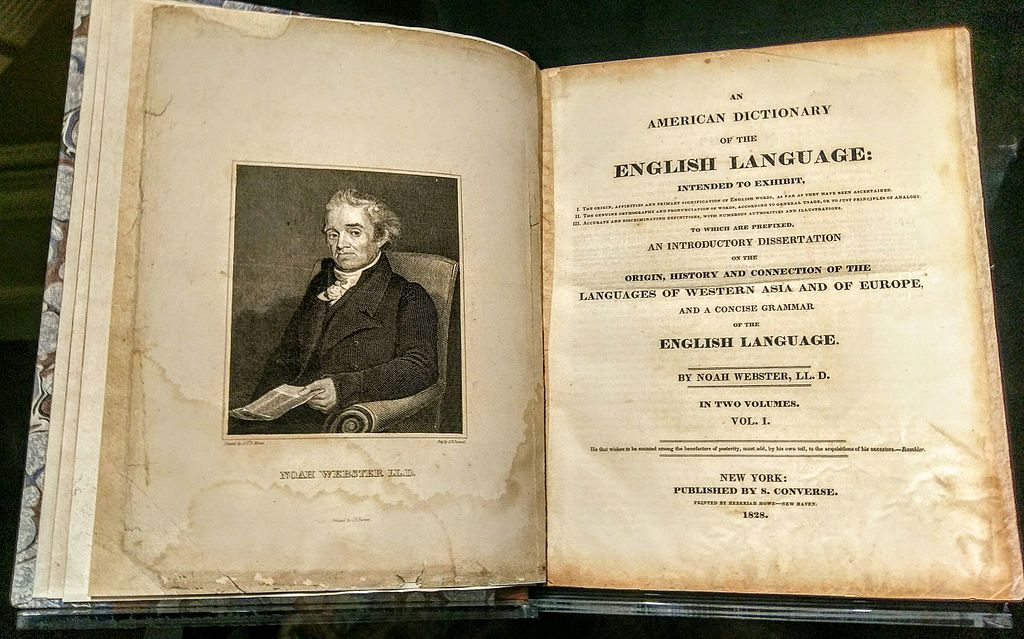Guest Post by Robert Hubbell
[Note from Shel: I discovered Robert Hubbell’s 5-times-per week newsletter last fall and immediately became a devotee. Coming from a center-left, pro-Democratic Party perspective, he’s a retired lawyer, a great researcher, and one of the most perceptive political analysts I’ve encountered anywhere. This is the March 29, 2021 edition of his newsletter, in full (reprinted with his permission). Unfortunately, when I copied from the email and pasted, I lost all his formatting and hyperlinks (I added the links I felt were crucial back in, but not his italics). I’ve emphasized a few parts in bold type. If you’d like to subscribe, please visit https://visitor.r20.constantcontact.com/manage/optin?v=001-oTDvYSKv8YU5Zx86Gk74yggRFimBmzfub5KIYj1SYTKlGBz-UVnt3Vykchgti1ORm6drUerMqIT9IV7eCyEaYd8O66yVspRSOt4DcB_kaY%3D ]
As Georgia Republicans do their best to disenfranchise the state’s Black citizens, the Georgia Film Commission invites the entertainment industry to come to Georgia with the friendly slogan, “Let’s make movies, Y’all.” The friendly tone of the Film Commission’s invitation is belied by the state’s criminalization of an act of mercy: handing water to voters standing in unconscionably long lines. It is belied by provisions in the Republican voter suppression bill to reduce the number of early voting days in Georgia. Nor is it friendly, “Y’all,” to limit the number of drop boxes in counties with large populations of Black voters. And it is downright mean-spirited to impose registration requirements for absentee ballots that will impose hardships on poor and elderly voters. Perhaps the Georgia Film Commission should consider modifying its slogan: “Let’s make movies, Y’all—as long as you don’t want Black members of your film crews to be able to vote on equal terms with white crew members.”
Georgia Republicans have re-instituted the Jim Crow era because they believe no one will care. Let’s prove them wrong. Major entertainment companies continue to reward the voter suppression policies of Georgia’s Republicans by accepting the financial inducements to produce films and television shows in Georgia while the GOP voter-suppression bill denies equal protection of laws to its citizens. American consumers should let those companies know how they feel about entertainment content that is produced under the reincarnation of the Jim Crow era. Per the Georgia Film Commission’s page, “Now Filming In Georgia,” the following major companies have multiple productions currently filming in Georgia:
Amazon Emergency
Amazon I Want You Back
Amazon My Best Friend’s Exorcism
CW Black Lightning S4
CW Legacies S3
CW Naomi
CW Power Puff Girls
Disney + Anchor Point
Disney + Jersey
Disney + Just Beyond S1
Disney + She Hulk
Netflix Cobra Kai S4
Netflix First Kill
Netflix Raising Dion S2
Netflix Sweet Magnolias S2
Consider these actions: If you are a fan of an actor in one of these productions, let them know on social media how you feel (so they can tell their producers). If you subscribe to any of the above services (Amazon, CW, Disney+, or Netflix), consider ways of expressing your displeasure over their support of voter-suppression fueled economy created by the Georgia GOP. Tell your friends how they can identify which shows are being produced in Georgia so they can post and share that information on social media. The link is here: Now Filming In Georgia.
An effort is already underway for entertainment companies to pressure Georgia to change its laws. Campaigns to boycott Coca-Cola and the Georgia entertainment industry have already been reported in the media. See NBCNews, “Calls for economic boycott grow after Georgia adopts voter restrictions.” And pressure will mount for Major League Baseball to move the 2021 All-Star Game away from Atlanta. See NJ.com, “MLB players want to discuss possibly moving the All-Star Game after Georgia passes controversial voting laws.”
I receive dozens of emails a month from readers asking, “What can I do now to make a difference?” Here’s a way to make a difference: Join millions of other Americans in telling major corporations that they should not remain silent in the face of efforts by Georgia Republicans to roll back the gains of the last fifty years. Republicans in Georgia currently believe they can have the best of both worlds: A one-party system that remains in power by disenfranchising Black voters and a robust economy fueled by entertainment and sports dollars funded by hundreds of millions of Americans who oppose those policies. Let’s prove Georgia Republicans wrong: They can’t have it all.
Is the Georgia Voter Bill Really that Bad? Yes, It Is.
Republicans in Georgia and commentators in the media have begun a charm offensive that tells Democrats, “Relax! The bill actually expands voter access and increases election integrity.” For example, one reader sent a note saying that on PBS’ News Hour, “David Brooks opined that Georgia’s voting restrictions were theatre and would not have a significant effect. Strangely, neither Judy Woodruff nor Jonathan Capehart disputed this.” Another reader who wants to make sure I don’t get out over my skis on this issue sent a link to an op-ed by Michael Goodwin in The New York Post, “The scare-Crow tactics of Democrats Goodwin.” I appreciate the caution from readers who are helping me in my effort to be an honest broker of information (recognizing, of course, that I do have a political point of view).
Let’s examine the facts. First, despite the barrels of ink spilled over this issue, few commentators refer to the actual language of the bill. The text of the bill is here if you want to fact check me (or others): Senate Bill 202 (as passed). The text of the bill proved difficult to find—because it was passed with haste and stealth. For a bill that Governor Kemp is proclaiming as a major expansion of voter rights, it was sprung on Democrats as a surprise. A two-page Senate bill was amended to a 98-page bill one hour before the committee hearing on the bill. It is barely possible to read the bill in an hour, much less comment on it during a legislative hearing. See Georgia Public Broadcasting “Georgia House Committee Hears Newer, Bigger Voting Omnibus You Haven’t Seen Yet.” If the bill improves voter access and election integrity, why did Republicans keep it a secret until the last minute (literally)? Legislation by ambush suggests a nefarious purpose.
We need not look far to find that nefarious purpose. The bill strips the independently elected Secretary of State of his position as a voting member of the State Elections Board—a position that the Secretary of State has held for fifty years. (Senate Bill 202 at p. 8). It also allows the Republican-controlled state legislators to fire (and replace) local election officials by demanding a “performance review” of local officials who fail to adhere to as-yet-defined performance expectations of GOP legislators. (S.B. 202 at pp. 20-22). What happened in 2020 that prompted Georgia Republicans to hastily change procedures that have been in place for half a century? We all know the answer, so let’s not pretend otherwise: Georgia’s Secretary of State refused to concede to Trump’s corrupt request that he “find” 11,780 votes—the exact number that Trump needed to win in Georgia.
In evaluating the intent and effect of the bill, we need not set aside all common sense and logic. Trump and the GOP failed to overturn a free and fair election that Biden won, and this is their revenge. There is simply no other explanation for the sudden effort to subordinate the previously independent Secretary of State and local election officials to the whims of the GOP-controlled legislature. Notice that Michael Goodwin’s essay in The New York Post fails to mention these nakedly partisan provisions of the bill. They are embarrassed by these provisions—as they should be.
One of the cynical tactics of Georgia Republicans is to include provisions that sound reasonable on their face but that operate to benefit white voters in small counties while disenfranchising Black voters in large counties. To understand how this cynical scheme works, we need to know a little about Georgia’s electoral structure. Elections are run at the county level. Georgia has 159 counties, many of which are tiny from an electoral perspective, and a handful of which are huge. See “Georgia Votes | County Viewer.” Forty-eight of those 159 counties have 10,000 registered voters or fewer. Fulton County, where Atlanta is (mostly) located, has 834,000 registered voters. With that in mind, let’s examine some of the provisions of the bill that allegedly “expand” voter access.
The law mandates that each county provide at least one ballot drop-box. Sounds good, right? But it also limits the ability of counties to deploy additional drop boxes. Under the S.B. 202, counties may “add only one dropbox for every 100,000 active registered voters.” (S.B. 202 at p. 47). Thus, the 48 counties with less than 10,000 voters each receive one dropbox. Fulton County, with 834,000 registered voters, can deploy only 8 drop boxes—one dropbox for every 100,000 voters. That is a wild disparity and is manifestly unfair. But here is where it becomes manifestly racist: The two counties with the largest population of voters—Fulton and Dekalb—also have the largest populations of Black voters. For example, Fulton County has the largest non-white population in Georgia at 595,000. The Demographic Statistical Atlas of the United States – Statistical Atlas. Thus, in counties with large populations of Black voters, there is one dropbox for every 100,000 voters, while in small counties of white voters (ranging from 1,000 to 10,000 voters), there is one dropbox. But to hear Governor Brian Kemp tell it, that provision “expands” voter access. In practice, it does the opposite by making it more difficult for Black voters to use drop boxes.
Another provision touted by the bill’s promoters is that it “requires” early voting for at least a week before an election, with such voting taking place on at least two Saturdays. County clerks have the “option” to include two Sundays of early voting. Sounds great, right? Wrong! The provision actually cuts short the advance voting for run-off elections (like those of Senators Warnock and Ossoff). Prior law mandated three weeks of early voting in run-offs. (See S.B. 202 at 60), and NPR, “Georgia Governor Signs Election Law Limiting Mail Voting.
So, why do GOP legislators claim that reducing early voting from three weeks to one week in run-offs “expands voting access”? Because they make a “finding” in the bill that, “More than 100 counties have never offered voting on Sunday and many counties offered only a single day of weekend voting.” (S.B. 202 at 4.) Hmm. . . that does sound like the bill expands early voting. But wait! The smallest 100 counties in Georgia have voter populations that range from 1,100 to 21,000. In such small counties, multiple weekend voting days are (may be?) unnecessary. But in Counties with large voter populations and large Black populations (e.g. Fulton with 834,000 voters), limiting early voting in run-offs to one week ensures long lines and making Sunday voting “optional” allows GOP election officials the opportunity to undermine a tradition of Black churches for voting on Sunday.
And what about the seemingly innocuous requirement that voters provide a driver’s license number when applying for a mail ballot? Sounds like a wise election security measure, right? Wrong, again! Georgia (and 30 other states) use signature matching for absentee ballots. Mr. Goodwin in his NYPost op-ed claims that signature matching is “unreliable” but fails to identify a single instance of fraud related to signature matching on mail ballots. So, why is signature matching “unreliable”? Because it is a Republican talking point. There was no fraud relating to mail ballots in Georgia in 2020.
If there was no fraud, why change? Because it is more difficult to register for absentee voting if you have to provide a copy of an I.D. If you have a driver’s license or other approved I.D., you can provide your I.D. number. But if you don’t have a driver’s license or other I.D. number, then you must send an electronic COPY of other identification. How many voters in Georgia don’t have a driver’s license or other specified I.D? Fair Fight Action estimates that 230,777 Georgia voters do not have the approved form of I.D. See The Hill, “Georgia’s GOP-led Senate passes bill requiring ID for absentee voting.” If you are poor, elderly, or don’t have a computer, sending an electronic copy of an I.D. may be the difference between being able to vote or not. Again, the requirement sounds reasonable, but the effect makes it harder to vote for the poor and elderly without access to a computer.
Here is another provision of the bill that bears discussion: Any voter may lodge an unlimited (!) number of challenges to the right of other voters to vote!! The local board of registrars must “immediately consider” the challenge and rule promptly. Hmm. What could go wrong with that? Oh, I know! What if a single individual intent on creating chaos challenges thousands of voters in Fulton County just because voters in other states have a similar name? Under S.B. 202, the local board of registrars will be overwhelmed with election challenges in the weeks before an election. This provision is essentially white vigilantism on steroids.
Finally, S.B. 202 limits early voting hours to the period from 9 AM to 5 PM—times when working voters won’t be able to take advantage of early voting! (S.B. 202 at p. 59) Fulton County had previously allowed early voting from 7 AM to 7 PM. See FultonCounty.gov, “Early Voting Locations.” Despite a shortening of hours that will make it more difficult for working people to vote, Governor Brian Kemp wants you to believe the GOP has “expanded” access to the polls. Don’t believe a word he says.
Concluding Thoughts.
I have gone on much too long, but the amount of disinformation being circulated by GOP talking heads—and promoted by the right-wing media—is overwhelming. Do not believe it. S.B. 202 is Trump’s revenge on Black voters in Georgia for electing Joe Biden. This travesty must be stopped.
Let me close by recommending that you read Professor Heather Cox Richardson’s essay on this subject, March 26, 2021 – Letters from an American. Professor Richardson is always superb, but her essay on S.B. 202 is exceptionally fine. Her essay begins:
Georgia Governor Brian Kemp signed his state’s new voter suppression law last night in a carefully staged photo op. As journalist Will Bunch of the Philadelphia Inquirer pointed out, Kemp sat at a polished table, with six white men around him, under a painting of the Callaway Plantation on which more than 100 Black people had been enslaved. As the men bore witness to the signing, Representative Park Cannon, a Black female lawmaker, was arrested and dragged away from the governor’s office.
We must send an unequivocal message to Georgia Republicans that they cannot simultaneously resurrect the Jim Crow era and enjoy the economic benefits of a diverse and open economy. Tell a friend.
Talk to you tomorrow!










